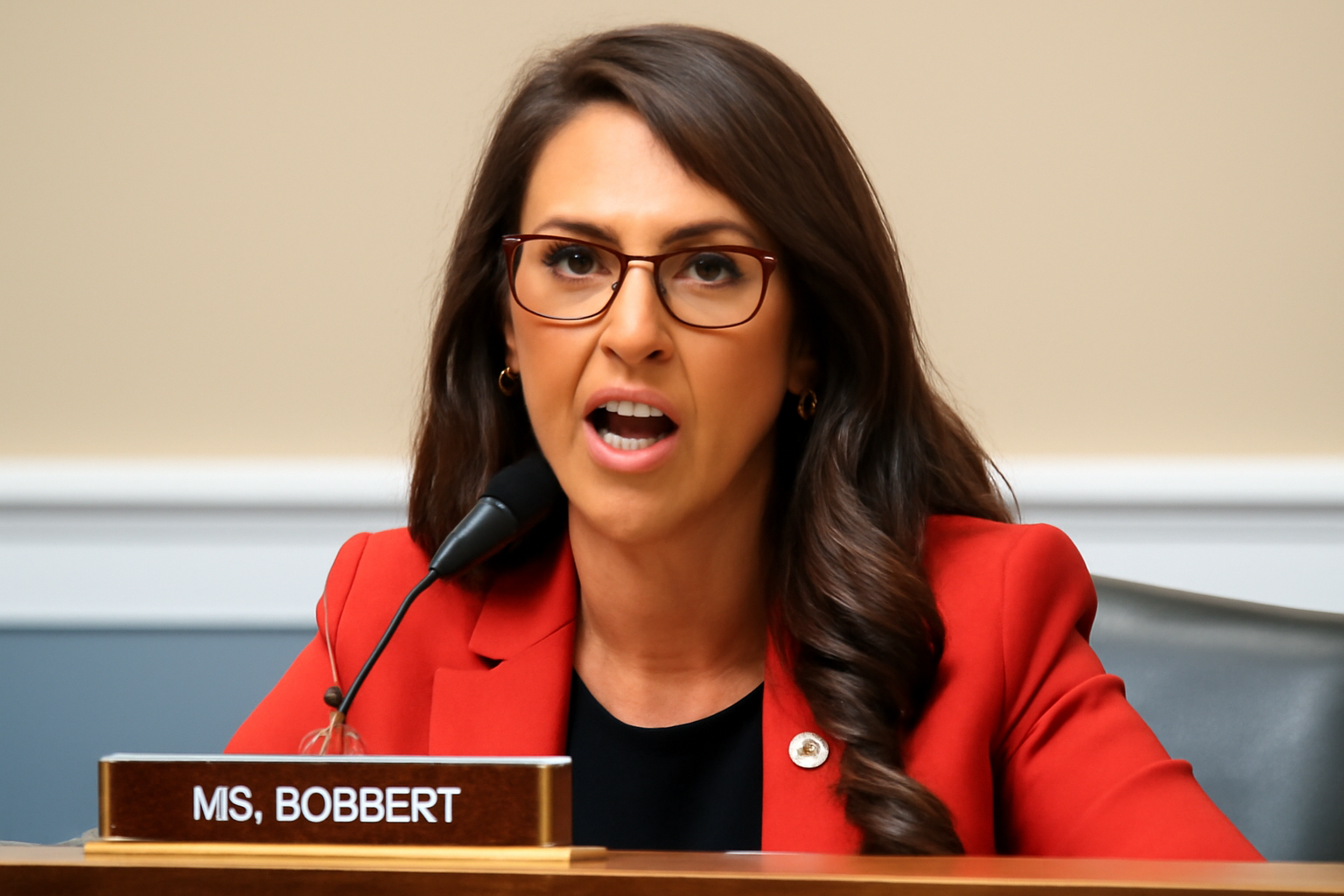
In a recent congressional hearing, Representative Lauren Boebert (R-CO), known for her staunchly conservative views and history of anti-LGBTQ+ statements, proposed an unexpected change: renaming the District of Columbia to the "District of America." This suggestion came amidst a heated exchange during a hearing held by the Water, Wildlife, and Fisheries Subcommittee.
Boebert's comments were in response to criticism from her Democratic colleagues regarding a previous decision by some Republicans to rename the "Gulf of Mexico" to the "Gulf of America." She expressed her frustration at what she perceived as derision from the opposing party, warning them against making jokes about the "Gulf of America" name change. "I would caution my colleagues on the other side of the aisle to refrain from making jokes about the Gulf of America," Boebert said. "Because next up may be the District of America that we are working on."
The notion of changing the name of the nation’s capital caught many by surprise, raising questions about the implications of such a move and reflecting the broader political and cultural debates currently taking place in the United States.
The Historical Context of D.C.'s Name
The District of Columbia, often referred to simply as D.C., has a name steeped in history. It doesn't derive its name from the country of Colombia, which gained its independence many years after the establishment of D.C. Rather, "Columbia" was a poetic name for the United States in the 18th century, embodying the spirit of exploration and the new world. The name is a tribute to Christopher Columbus, although this association has also come under scrutiny in recent years.
Changing the name to "District of America" would be a significant departure from this historical context and could spark debate over the representation and identity of the nation’s capital.
Lauren Boebert's Controversial Stance
Representative Boebert has made a name for herself with her outspoken and often controversial statements, especially regarding LGBTQ+ issues. Her position on renaming D.C. is just one in a series of actions that have drawn both support and strong opposition.
Earlier in her political career, Boebert faced backlash for her comments about transgender individuals, particularly regarding access to bathrooms and other gender-specific facilities. In one instance, she was criticized for her reaction to what she believed was a man entering a women’s restroom, only to later admit to an error in her judgment. "I made an error regarding a mistaken identity," she confessed following the incident, although the initial statement had already sparked widespread criticism.
The Political Implications
The suggestion to rename D.C. is emblematic of the broader cultural and political rifts currently being navigated in the United States. While some may see the proposal as a patriotic gesture, others view it as a move that oversimplifies and disregards the nuanced history of the capital.
Renaming significant landmarks and areas has become a common topic in political discourse, reflecting deeper societal debates about identity, history, and the values that modern America chooses to highlight. The reaction to Boebert's suggestion is likely to be mixed, with support from some conservative constituents who align with her views, and opposition from those who see the move as unnecessary or even regressive.
The Future of the "District of America" Proposal
As of now, Boebert's idea remains just that—a proposal without any formal action taken towards changing the name of the capital. It is unclear whether this suggestion will gain any traction or if it will remain in the realm of political rhetoric. However, it is indicative of Boebert’s approach to governance and her willingness to challenge established norms and provoke debate.
In the coming weeks and months, it will be interesting to observe whether this idea is pursued further and how it might influence other similar proposals across the nation. As always, such discussions reflect broader tensions and dialogues within the American political landscape, and the potential renaming of D.C. serves as another chapter in this ongoing narrative.
With each statement and proposal, Representative Boebert continues to shape her political identity, drawing both fervent support and strong criticism. Her proposal to rename the capital is yet another example of how she remains a polarizing figure in American politics.
Related Posts
Space Pioneer Sally Ride's Partner Criticizes NASA's DEI Policy Changes
Tensions are mounting as Tam O'Shaoughnessy, Sally Ride's partner, speaks out against NASA's recent decision that dials back on diversity, equity, and inclusion (DEI) policies. This shift traces back changes sparked under Trump's administration. Sally Ride made history in 1983 when she climbed aboard space shuttle Challenger at just 32, becoming America's youngest astronaut. She fought a brave ba [...]
New Pope Leo XIV Speaks on Family and LGBTQ+ Issues
Pope Leo XIV, who has just been chosen as head honcho at St. Peter's, made waves with his recent speech on gay marriage and other big social topics. He laid it all out, giving us a peek at how he plans on steering this massive ship we call faith concerning LGBTQ+ rights. The American-born pontiff didn't waste time, dropping this bombshell in his first big meet-up with Vatican diplomats from around [...]
FDA Greenlights New Biannual HIV Prevention Drug, Offering Hope for a Global Health Breakthrough
The FDA recently gave a thumbs-up, and it's a game-changer: Yeztugo, also known as lenacapavir or LEN, has hit a major milestone in HIV prevention. This innovative shot, taken just twice a year, keeps HIV from multiplying in cells and cuts down transmission risk by a whopping 96%. It's no wonder HIV advocates are excited, seeing it as a simpler and potentially far-reaching alternative compared wit [...]